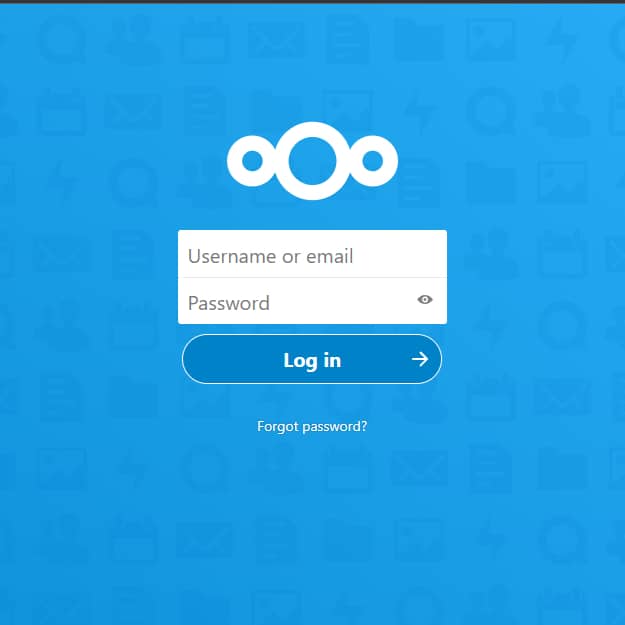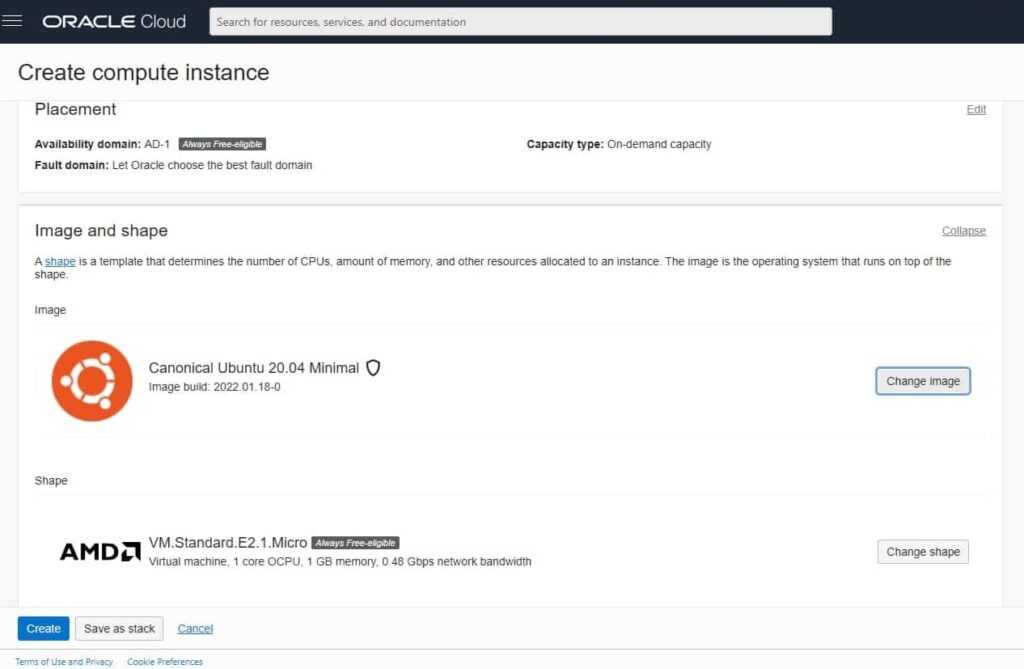Introduction
If you have ever heard of terms such as Cloud Storage and Open-Source, this article might prove to be useful for your needs. Today, we are going to talk about Nextcloud.
We will also tell you the way for you to set it up by yourself for free forever. If that sounds too good to be true, stay with us till the end of the article and decide for yourself if this claim holds true or not.
What Is Nextcloud?

Nextcloud is an open-sourced self-hosted cloud platform. You can also add a lot of different features by installing some extensions for Nextcloud within the app itself.
After setting up Nextcloud, you can access your files from your PC and Mobile devices as well by installing the Nextcloud app. You can easily store all your files and folders on your own server.
This is great for hobbyists and for people who place privacy over everything. Although Nextcloud is great and although there are some technical know-hows which you will need to learn before you can provision a server and host Nextcloud over there.
We are here to help you out on this journey. We will teach you step by step about getting a lifetime free server and hosting Nextcloud on it.
Before we get started, let me say that hosting your own cloud storage is great but it will not be comparable with other cloud service providers such as Google, Dropbox and Microsoft. You can try this fun project but I will recommend not to host essential files on your self-hosted server because if something goes wrong it is unlikely that you will be able to recover your data.
How To Setup Nextcloud
The steps to setup Nextcloud for free are as follows:-
- Sign up on Oracle Cloud Always Free tier
- Create a Compute Instance (name it whatever you want)
- Change the default Image to Ubuntu minimal or just Ubuntu.

- Store the SSH private key safely

- Modify SSH private key permissions
For doing that, follow these simple steps:-
- First right click on SSH Key and go to properties.
- Then go to Security
- Click on Advanced
- Disable Inheritance
- Add your Microsoft account via Email on the panel
- Give all permissions to your account
- Remove all other users (except System, Administrator and your Own account)
Then open Powershell and SSH into your Oracle instance by using the private key.
It should look something like this-
ssh ubuntu@< public IP > -i < path to your ssh private key > (Remember to put in your instance Public IP address and your SSH key path.)
After logging in to your system type these two commands-
Sudo apt upgrade
Sudo apt update
To install and setup Nextcloud, use these commands-
Sudo snap install nextcloud
sudo nextcloud.manual-install <username> <password> (Type in your Username and Password which you want to use for Nextcloud)
Give Access to Trusted Servers by using these commands:-
sudo nextcloud.occ config:system:get trusted_domains
sudo nextcloud.occ config:system:set trusted_domains 1 –value=<your public IP address>
To resolve IP tables issue, use these command to override defaults-
sudo iptables -P INPUT ACCEPT
sudo iptables -P OUTPUT ACCEPT
sudo iptables -P FORWARD ACCEPT
sudo iptables -F
To Set up Firewall and Port Forwarding, type in these commands-
sudo apt-get install ufw
sudo ufw allow ssh
sudo ufw allow 443/tcp
sudo ufw allow 80/tcp
- Now go to Menu>Compute>Instance>Nextcloud( or whatever else you have named your instance)
- Click on VCN
- Go to Security lists
- Select the default Security lists

- Create two new rules to allow traffic from everywhere around the world.
To do that follow these steps:-
- Add New Rule

- Source Type CIDR
- Source CIDR

- IP Protocol TCP
- Destination Port Range – 80,443
(Optional) Adding an SSL Certificate
If you have a domain name and would like to use that instead, you can add an SSL certificate as well. Just type one simple command:-
sudo nextcloud.enable-https lets-encrypt
Benefits Of Using Nextcloud
Now that you know the steps to set up Nextcloud, let’s talk about why you should be using it. There are numerous benefits of using Nextcloud such as:-
Open-Source
Nextcloud is open-sourced in nature which in layman terms means that you can see the code for yourself and ensure that there is no presence of any malicious code. You can even contribute to the community by suggesting features and finding out any vulnerabilities.
Even if you are not tech-savvy, remember that if an application is open-sourced there is little to no chance that the developer is trying to hide something from its users. This can be very reassuring for many users.
Free
This is something which makes Nextcloud ideal for a lot of users. Nextcloud is completely free of charge.
The only price you pay for is hosting. Even this can be avoided if you have followed the steps we mentioned in this article to host it on Oracle Always Free tier which makes it an ideal alternative to other Cloud platforms.
Privacy
When all your data is stored on your own server, you can be rest assured that your data is in your hands. If you want to take privacy to the next level, you can even try setting up your own Home server to host Nextcloud but make sure your router supports port forwarding before trying this.
Although I would not suggest hosting your own server at home if you are not fully aware about setting up firewall rules. However, if you want to try this out as a hobby project then I will suggest you to host Nextcloud on localhost first.
Apps
There are other uses of Nextcloud as well other than providing cloud storage. You can install applications on Nextcloud to increase its functionality. There are apps such as an entire Office suite, Chat application and Maps.
Along with the above mentioned apps, there are a number of different apps which can be installed within your Nextcloud instance. Nextcloud can work as a fully featured cloud application for all of your needs.
Multi-User Support
You can also have multiple users on a single instance of Nextcloud. This is great for those people who work in a team and require to transfer large files on a daily basis.
Having multi-user support makes Nextcloud a great choice for small and large teams alike. You can also install an application in Nextcloud to make the transferred data encrypted.
Issues With Using Nextcloud
As the saying goes, every coin has two sides. Nextcloud is not an exception. There are certain issues such as:-
Not Suitable For Regular Users
As good as Nextcloud is, it is not ideal for regular users. Most people prefer to store their important documents on Google Drive and Onedrive due to their extreme simplicity.
Also, if you face issues in your Nextcloud installation, you are on your own to find the solution. You can even lose your important data if things go wrong which is highly unlikely but still possible.
Speed Issues
Although I have not noticed any speed related issues with Nextcloud, some people have reported noticing such issues on forums. Most of the time, the problem is from the host side but sometimes you may notice such problems while downloading your files.
Does Not Support Latest PHP Version
This is something which I have faced recently. While setting up Nextcloud on my Arch installation, I figured out that my Nextcloud failed to run due to incompatibility with PHP 8.1.2.
This is not a big problem but if you want to be running the latest PHP installation along with Nextcloud, it is not possible at the time of writing this article.
Conclusion
If you are reading till here, that’s great and I hope all of your problems have been resolved. You can try to get your Nextcloud instance up and running for free which can be a nice project.
We have also dealt with the features as well as the limitations of Nextcloud compared with its competition. If you happen to face any problems during your Nextcloud install, feel free to drop a comment and ask your query.
If this article was helpful to you, let us know and you may also like our other similar posts such as:-
Garuda Linux Review: All You Need To Know
